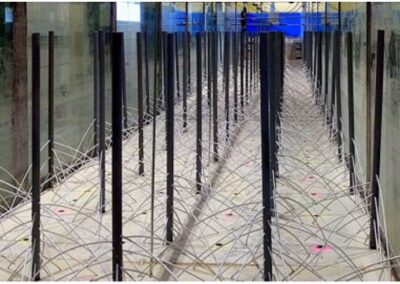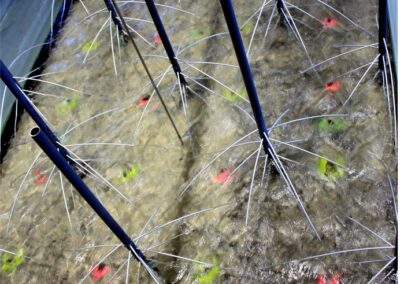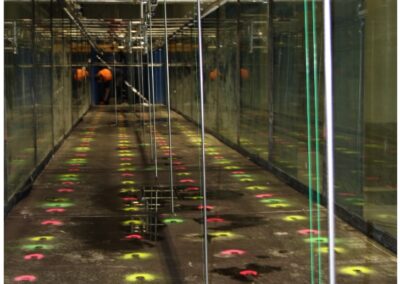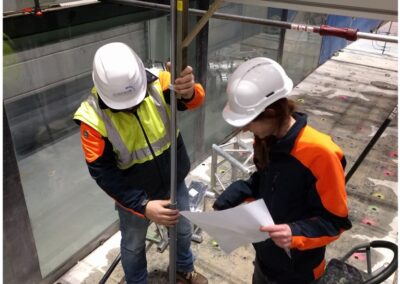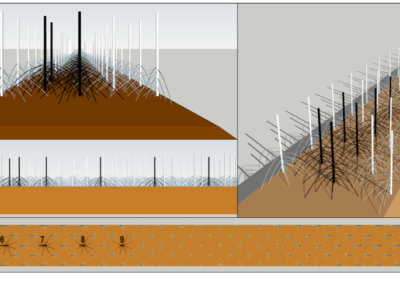ECOPROOF
“Strengthening resilience and adaptive capacity to climate-related risks and natural disasters.”


ECOPROOF
2014 – 2018
-
Flood and erosion risks are increasing in many areas of the world due to global and regional changes in climate, as well as increased coastal exposure and vulnerability. Vegetated coastal ecosystems and corals provide important protective services by attenuating waves, weathering tides and retaining sediment. Thus, coastal defense based on ecosystem services can be a more sustainable and economical option than conventional ones and offers additional benefits including contribution to climate change mitigation, improvements in water quality, biodiversity or fisheries.
The objective of the project was to improve scientific-technical knowledge on the interaction of marine dynamics with natural coastal systems in order to incorporate this type of solutions into the portfolio of options for coastal defense, with the aim of reducing the risk of flooding and erosion caused by extreme events and climate change. The project focused on the quantitative assessment of the protective services provided by marine ecosystems, such as corals, marine phanerogams or macro-algae, and by intertidal vegetation, such as mangroves and salt marsh vegetation, their sensitivity to changes caused by climate change and their possible hybridization with conventional solutions.

ECOPROOF
2014 – 2018
Flood and erosion risks are increasing in many areas of the world due to global and regional changes in climate, as well as increased coastal exposure and vulnerability. Vegetated coastal ecosystems and corals provide important protective services by attenuating waves, weathering tides and retaining sediment. Thus, coastal defense based on ecosystem services can be a more sustainable and economical option than conventional ones and offers additional benefits including contribution to climate change mitigation, improvements in water quality, biodiversity or fisheries.
The objective of the project was to improve scientific-technical knowledge on the interaction of marine dynamics with natural coastal systems in order to incorporate this type of solutions into the portfolio of options for coastal defense, with the aim of reducing the risk of flooding and erosion caused by extreme events and climate change. The project focused on the quantitative assessment of the protective services provided by marine ecosystems, such as corals, marine phanerogams or macro-algae, and by intertidal vegetation, such as mangroves and salt marsh vegetation, their sensitivity to changes caused by climate change and their possible hybridization with conventional solutions.


CONTEXT
-
- REGION, COUNTRY: Spain
- CLIENT: Ministry of Economy and Competitiveness
- FUNDING SOURCE: Ministry of Economy and Competitiveness, Call for Research Challenges: R&D&I Projects 2014.
- SCOPE: National / European / International
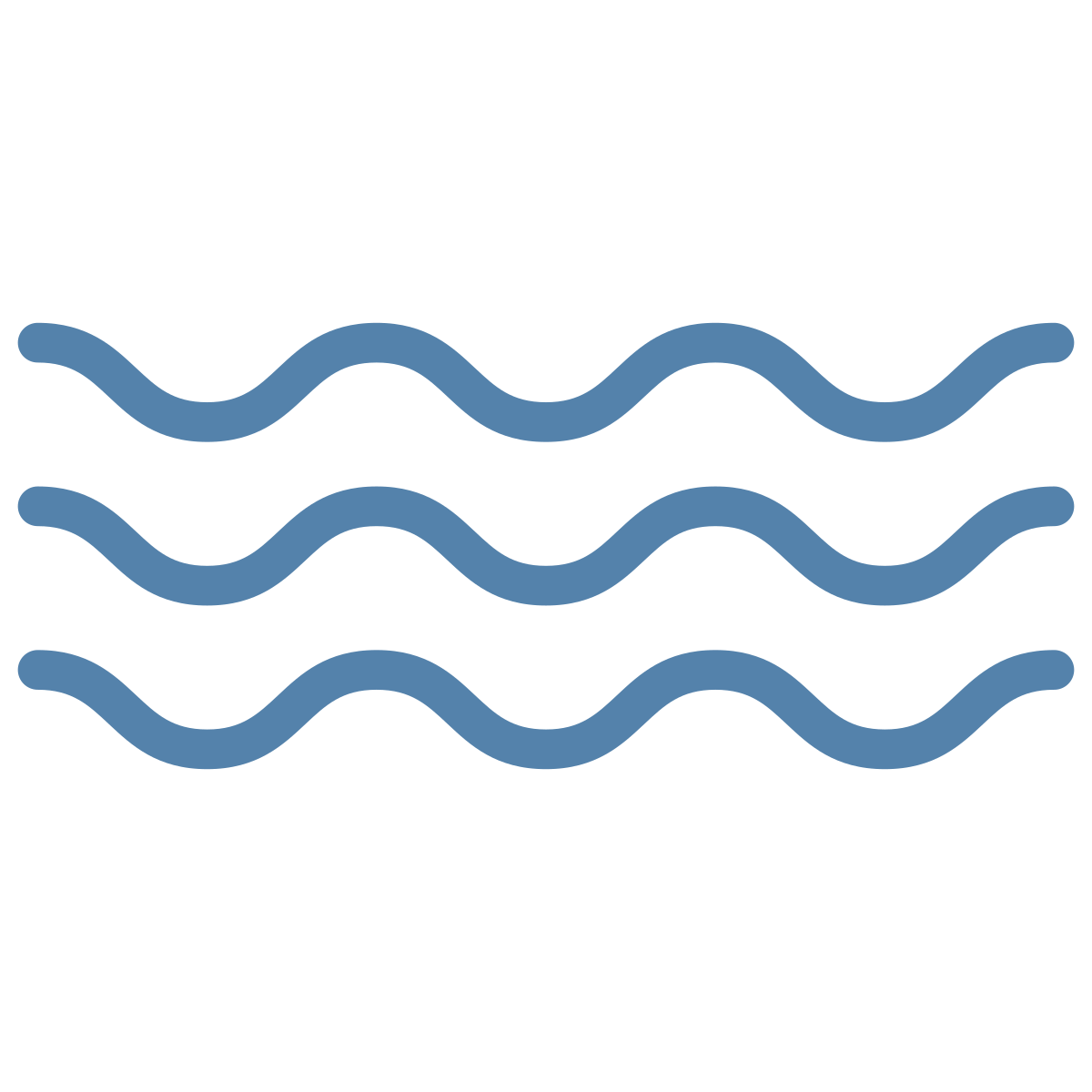
WHAT HAS MADE THIS PROJECT UNIQUE?
-
- Supporting evidence-based decision making and innovation for contribution to the SDGs.
- Design of multidisciplinary, integrated and unique solutions to address the complexity of socio-ecological systems associated with water and ensure their resilience.
- Innovative management model, capable of generating a return for society that triples the public investment it receives and guarantees self-financing of over 70%.

HOW HAS IT ALIGNED WITH OUR MISSION AND VISION?
-
- The ECOPROOF project has made a unique contribution to promoting scientific excellence and its transfer with a multidisciplinary approach contributing to climate change adaptation (SDG 13) and the resilience of coastal ecosystems.
- It has also favored the development of innovative solutions based on scientific excellence for the integrated management of socio-ecological systems associated with water.

WHAT LESSONS HAVE BEEN LEARNED?
-
- Through this initial analysis, it has been possible to integrate the results into larger scale models that, combined with historical and projected meteo-oceanic conditions, serve as the basis for developing an integrated methodology for assessing the protective services provided by different natural systems.
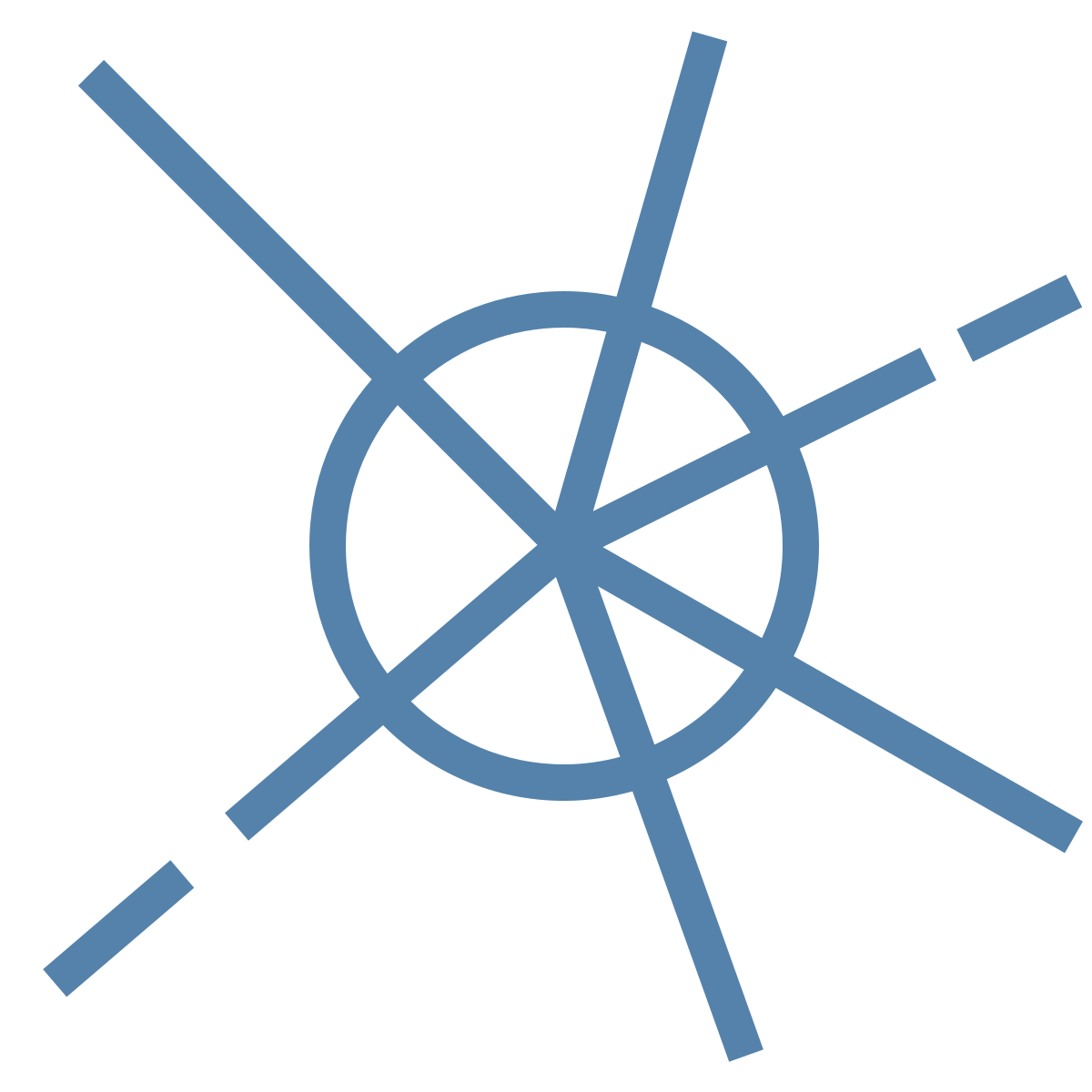
WHAT HAS BEEN THE IMPACT OF THE PROJECT?
-
- A guide with recommendations for coastal management personnel to use natural systems-based solutions as a practical and effective alternative.
- 5 scientific articles, 6 presentations at national and international congresses, and 5 international workshops.

WHY HAS IT BEEN SUCH A SUCCESS?
-
- One of the keys has been the mathematical modeling of wave and current interaction with coastal ecosystems, combining state-of-the-art experimental and numerical modeling.

CONTEXT
CLIENT: Ministry of Economy and Competitiveness
FUNDING SOURCE: Ministry of Economy and Competitiveness, Call for Research Challenges: R&D&I Projects 2014.
SCOPE: National / European / International

WHAT HAS MADE THIS PROJECT UNIQUE?
- Supporting evidence-based decision making and innovation for contribution to the SDGs.
- Design of multidisciplinary, integrated and unique solutions to address the complexity of socio-ecological systems associated with water and ensure their resilience.
- Innovative management model, capable of generating a return for society that triples the public investment it receives and guarantees self-financing of over 70%.

HOW HAS IT ALIGNED WITH OUR MISSION AND VISION?
- The ECOPROOF project has made a unique contribution to promoting scientific excellence and its transfer with a multidisciplinary approach contributing to climate change adaptation (SDG 13) and the resilience of coastal ecosystems.
- It has also favored the development of innovative solutions based on scientific excellence for the integrated management of socio-ecological systems associated with water.

WHAT LESSONS HAVE BEEN LEARNED?
- Through this initial analysis, it has been possible to integrate the results into larger scale models that, combined with historical and projected meteo-oceanic conditions, serve as the basis for developing an integrated methodology for assessing the protective services provided by different natural systems.

WHAT HAS BEEN THE IMPACT OF THE PROJECT?
- A guide with recommendations for coastal management personnel to use natural systems-based solutions as a practical and effective alternative.
- 5 scientific articles, 6 presentations at national and international congresses, and 5 international workshops.

WHY HAS IT BEEN SUCH A SUCCESS?
- One of the keys has been the mathematical modeling of wave and current interaction with coastal ecosystems, combining state-of-the-art experimental and numerical modeling.
PARTICIPATING ENTITIES
UCSC – University of California at Santa Cruz (United States)
Deltares – Delft Hydraulics (The Netherlands)
NIOZ -Netherlands Institute for Sea Research (The Netherlands)
PARTICIPATING ENTITIES
– UCSC – University of California at Santa Cruz (United States)
– Deltares – Delft Hydraulics (The Netherlands)
– NIOZ -Netherlands Institute for Sea Research (The Netherlands)

